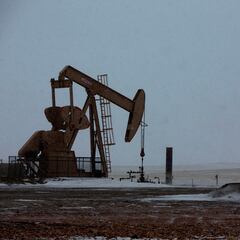What is a carbon footprint and what are some steps I can take to reduce it?
While not invented by big oil companies, a successful BP marketing campaign in 2004 shifted the blame for the climate crisis from big oil to the individual. Can governments address this?


Carbon footprint is an idea that, at least for Gen Z-ers, has been around our whole lives. It sounds like a good plan and it’s difficult to disagree with that on its face-value. If as many people as possible stopped using plastic strawers, shunned single-use plastic packaging, and recycled all of their waste, then surely the climate crisis could be overcome?
Well, actually no. And this is based upon how the idea of the carbon footprint was popularised, by who, and with what goal in mind.
Big oil and the carbon footprint
Although the idea of the carbon footprint was coined at the University of British Columbia in Canada, it wasn’t until a mid-2000s advertising campaign by oil giant British Petroleum (BP) that it was catapulted into mainstream discourse.
Described as “one of the most successful, deceptive PR campaigns maybe ever,” BP sought to reposition the discussion surrounding climate change from oil companies onto individuals. People were instructed to calculate their carbon footprint, on a calculator helpfully provided by BP, and take measures to offset their own carbon use.
As mentioned earlier, this premise does not sound bad. But when pushed by the big oil companies, it is an insidious move to put climate change responsibility onto a handful of people and for oil companies to shirk responsibility. While encouraging others to cut back, oil companies have been increasing output and increasing profits to their highest in decades.
Related stories
At climate conference meetings, discussion never surrounds personal responsibility and is always focused upon large-scale, state-backed action. Left to their own devices, oil companies would continue to damage the planet. The more profits they make, the more money they have to leverage politicians, resulting in weakened climate control measures. Look no further than the Inflation Reduction Act expanding the areas oil companies can drill at the same time as making it easier for the individual to offset their carbon with tax credits. Oil companies escape political action again.
The Inflation Reduction Act will spend $20 billion on agriculture, but it won't address ag's biggest emitters: meat and dairy production. https://t.co/nFNrLr2I5e
— Kenny Torrella (@KennyTorrella) August 13, 2022
None of this is to say that individual action is not neccesary, it certainly is. However, this action must be coupled with systemic change against the actions of corporations that seek to profit from the destruction of our planet. Until these companies are brought to heel, the Earth will continue to heat up and it will be the planets poorest that suffer.

